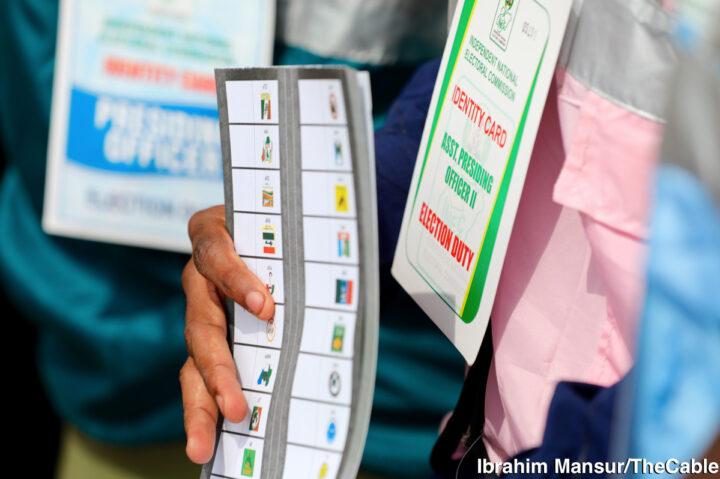The Supreme Court says the non-signing or stamping of ballot papers used for elections cannot invalidate the results if endorsed by the Independent National Electoral Commission (INEC).
In September, the Kano state governorship election petition tribunal sacked Abba Yusuf as governor of Kano state due to the non-signing and stamping of some ballot papers.
The tribunal deducted 165,616 votes from the 1,019,602 recorded for Yusuf because the ballot papers (165,616) were not stamped, signed, and dated as required by law.
The tribunal declared Nasir Gawuna of the All Progressives Congress (APC) as the winner.
The appeal court also affirmed Yusuf’s sack by the tribunal.
However, in overturning the decision of the two lower courts, the Supreme Court held that “the ballot papers were not stamped and signed and do not refer to or regulate any action at the polling unit”.
John Okoro, the justice who led the five-member panel of the apex court, said the sections relied on by the tribunal referred expressly to result forms and not ballot papers.
“What is the effect of a ballot paper not having the official mark prescribed by the commission?” Okoro asked.
“The answer is found in Section 63(1) (2) 2022. A ballot paper that does not bear the official mark of INEC is not altogether invalid for all purposes. The said ballot papers contained both the logo of INEC and the coat of arms of the Federal Republic of Nigeria as prescribed by Section 45 of the Act.
“Assuming these marks were not there, it is for the petitioner making a claim of unlawful ballot papers to prove that the ballot papers did not come from a booklet of ballot papers furnished to the presiding officers pursuant to sec 63(2) of the Electoral Act.
“In the instant case, there is no such proof that the said ballot papers were not the ones furnished to the presiding officers in the polling units.
“Contrarily, paragraph 92 of the petitioners confirmed that those were the ballot papers used at the lower court. Thus, the decision of the lower court affirming that of the trial tribunal ought to be set aside.
“Moreover, the Supreme Court noted that the PW2 had testified that of the 165,616 ballot papers held to be invalid, 146,292 were both signed and stamped. The only feature left out was the date.
“Therefore, those ballot papers not only fully complied with the format of the Electoral Act, they also substantially complied with the guidelines. The votes should have been restored to the appellants, which by itself would reinstate their victory.
“Thus, apart from the official marking that requires the logo of INEC on the format of the ballot papers, these additional entries further support the validity of the ballot papers.
“The lower court wrongly misconstrued the import of exhibit P169 when they evaluated it to reach the conclusion of invalid votes when, in actual fact, it demonstrated that the ballot papers were not invalid.
“The import of this misconception and misapprehension leads to perverseness, and in this circumstance, the said decision cannot stand.
“Accordingly, all those ballot papers duly issued by INEC used in the said election are hereby restored to the appellants; there has been no evidence that the appellants influenced the non-signing, stamping, or dating of some of the ballot papers.”

